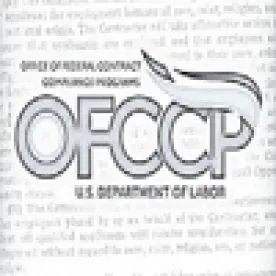The US Department of Labor’s Office of Federal Contract Compliance Programs (OFCCP) recently broadcasted a notice to federal contractors of its potential release of their EEO-1 reports. Contractors have until September 19, 2022, to file written objections with OFCCP.
EEO-1 reports identify the number of employees in nine categories (e.g., executives, professionals and operatives), identifying the gender breakdown and racial breakdown of each category. Historically, OFCCP has kept those confidential, as have most employers.
IN DEPTH
OFCCP received a request under the Freedom of Information Act (FOIA) from the Center for Investigative Reporting for these EEO-1 reports. Under FOIA, any member of the public has a right to access government records except for those records protected by exemptions or exclusions.
This request seeks Consolidated EEO-1 Reports submitted by federal contractors from 2016-2020. Historically, OFCCP has rejected FOIA requests for EEO-1’s on the basis of the FOIA’s Exemption 4, which limits disclosure of “trade secrets and commercial or financial information obtained from a person [that is] privileged or confidential.” 5 U.S.C. 552(b)(4).
Yet, the Center for Investigative Reporting has already succeeded in obtaining EEO-1’s in one case. There, the district court ruled that the EEO-1’s of 10 federal contractors could not be withheld under FOIA Exemption 4. Center for Investigative Reporting v. U.S. Dep’t of Labor, 424 F. Supp. 3d 771 (N.D. Cal. 2019).
After reviewing declarations from the objecting contractors in that case (which the court described as “conclusory”), the district court held that the evidence failed to support a finding that the EEO-1 reports were commercial and, thus, qualified for nondisclosure under Exemption 4. Id. at 778-79.
Perhaps too little was done there to explain the significance of EEO-1 data. For example, with EEO-1 data, it is possible to reverse engineer the staffing and pay systems of competitors to wipe out any competitive advantage on that front. See, e.g., Chrysler Corp. v. Schlesinger, 412 F. Supp. 171 (D. Del. 1976) (outlining satisfactory proof of just such commercial harms).
Key Takeaways
OFCCP has advised contractors of their option to object to this potential disclosure of their EEO-1 data. Objecting contractors have been asked to address the following questions in their responses to assist in determining whether this information should be withheld pursuant to Exemption 4:
-
What specific information from the EEO-1 Report does the contractor consider to be a trade secret or [confidential] commercial or financial information?
-
What facts support the contractor’s belief that this information is [confidential] commercial or financial in nature?
-
Does the contractor customarily keep the requested information private or closely held? What steps have been taken by the contractor to protect the confidentiality of the requested data, and to who has it been disclosed?
-
Does the contractor contend that the government provided an express or implied assurance of confidentiality? If not, were there express or implied indications at the time the information was submitted that the government would publicly disclose the information?
-
How would disclosure of this information harm the interest of the contractor protected by Exemption 4 (such as by causing foreseeable harm to the contractor’s economic or business interests)?
Contractors who fail to respond by September 19, 2022, will waive objection to the disclosure of their EEO-1 reports. Contractors wishing to object to the disclosure of their EEO-1 reports can turn to Chrysler’s arguments from its 1970s case for guidance in addressing how the disclosure of the employment data in their EEO-1’s could harm their business interests.
OFCCP will consider objections but may still determine to release EEO-1’s. If so, contractors will be notified of that decision and the approximate date of disclosure. Such notice is where the Chrysler case began over 40 years ago, ultimately resulting in a US Supreme Court decision authorizing contractors to file suit to stop such unwarranted FOIA disclosures.




 />i
/>i

